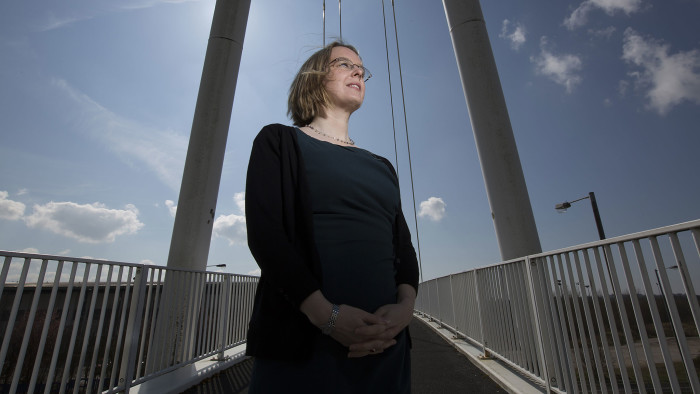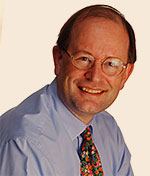Certificated executive education growing in popularity

Simply sign up to the Business education myFT Digest -- delivered directly to your inbox.
Joy Furnival was not after certificates but a move up the career ladder when she completed the masters in leadership (quality improvement) course at Ashridge Business School in the UK.
At the time, she was more concerned about moving forward in her job as head of transformation at a National Health Service trust than about mentioning to others the certificate she had received on passing her exams.
“I went on the Ashridge programme, not for the certificate but to improve and enhance my skills in the healthcare sector,” she says.
However, her attitude has changed since she took the course. She now sees the certificate as a stepping stone to further her career with her current and future employers. If it had not been for her course at Ashridge, she would not now be studying for a PhD at Manchester Business School.
“It has provided me with an accreditation, a charter mark, that potential employers can see on my CV as a qualification they can value and trust,” she says. “More importantly, it has led to significant career development, which otherwise I would not have expected or been able to do.”
It appears Furnival is not alone in seeing a value to certificated qualifications. Executive education used to be just about completing courses, often paid for by large employers, but increasingly the pieces of paper students receive have been given special status. Certification for executive education is on the rise.
Although certificates are already provided on many of the executive education programmes run by the top business schools — and can be found proudly framed on their students’ office walls — many of these schools have created additional levels of study that can earn those prepared to put in the extra work an even more exclusive piece of paper.
At Insead near Paris, for instance, students on the corporate governance programme have an option to submit an additional dissertation, for which they receive an extra certificate.

This additional prize is not just attractive to the students, but a way for the school to show its position as an expert in the field and strengthen its network of course students, according to Mark Roberts, Insead’s associate dean for executive education.
“There was a strategic decision by the school that we wanted to be a leader in that space and [the certificated dissertation] was part of that,” he says, noting that there has been an uptick in the number of students looking to receive the additional certification in the four years the programme has run.
“It has a positive impact on the school if you do [a certification programme] well,” Roberts adds. “But it is also [a help] for board members who complete the course. For those who get this certificate it makes them more desirable as a board executive.”
In Pennsylvania, Wharton has created the certificate of professional development (CPD) to recognise students who complete four or more of its executive education courses.
Several hundred people have now gained this accreditation and Wharton has created a place on its website to feature them, forming a connection to the school for executive education students, who are not entitled to describe themselves as Wharton alumni, unlike MBA graduates.
“People do put it on their résumé and often they will link our web page to their LinkedIn account,” says Maria Pitone, practice leader of general management programmes at Wharton. “It shows they have been investing in their education. In many ways they are our ambassadors.”
Pitone has been in the executive education team at Wharton for several years and says she has seen interest increase in earning certificates that show a deeper level of education in a particular subject.
“People take personal development very seriously,” she says. “Many of those who get the CPD already have quite advanced degrees but want to show commitment to their ongoing education.”
The interest in personal development is particularly evident in emerging markets, according to Wharton’s enrolment figures. In the US, more than 90 per cent of the participants who do the CPD at Wharton are sponsored by their employer. In India, however, where Wharton offers a certificate called the accelerated development programme, about a third of participants pay their own fees with no contribution from their employer.

Martin Lockett, dean of academic development at Ashridge, says most organisations do not appreciate the rigorous nature of UK qualifications when they ask about certification — whether as a higher education qualification or a vocational one. A postgraduate certificate requires about 600 hours of learning at masters level at Ashridge, according to Lockett.
“The UK has strict regulation to preserve its educational brand, so Ashridge has had to go through extensive reviews in order to award its own degrees,” he says. “The trend at Ashridge is to do more but never to give away qualifications just for attending a short programme.”
Saïd Business School at the University of Oxford awards certificates to everyone who completes open-enrolment programmes. However, in recent years it has introduced four certificated diploma programmes that provide students with a bridge between executive education and the school’s MBA programmes.
The people who enrol on these courses, typically about 200 a year, will be in their late 30s or early 40s and have completed an MBA and some executive education courses and want a bit more, according to Matthew Conisbee, associate director for business development on the executive degree programmes.
In this way, certificated courses are meeting a demand that neither executive education nor MBA programmes could reach, he says.
“We didn’t want to produce anything that would cannibalise what we did already,” he adds. “These are very ambitious people, often investing in themselves, rather than having the course fees paid by their company.”
This individuality is reflected in the finding that about a fifth of people attending Saïd’s certificated programmes set up their own business, often in partnership with fellow students, after completing the diplomas.
Many students are also looking to improve their standing to get a board-level position in a larger company, Conisbee notes.
Having a piece of paper from the business school attached to an institution such as the University of Oxford can presumably go some way to helping with this ambition.
Comments